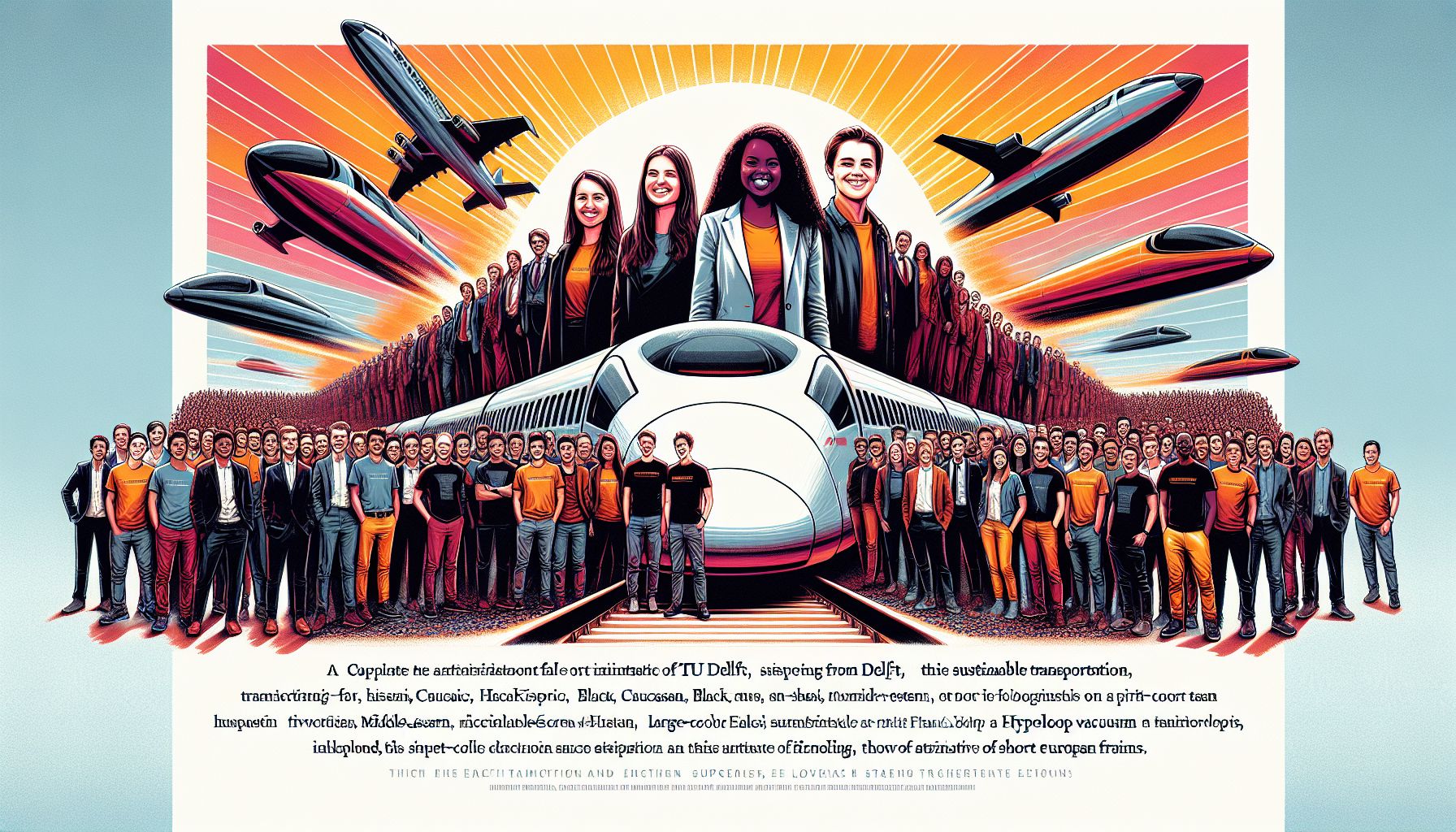TU Delft Students Achieve Milestone with Hyperloop Track Change

TU Delft students successfully tested a track change for the Hyperloop vacuum train, bringing it closer to becoming a sustainable alternative for short European flights.
A Leap Towards Sustainable Transit
The groundbreaking achievement by the Delft Hyperloop team marks a significant step in green innovation. The successful track change test, conducted on a 42-meter-long test track on the TU Delft campus, demonstrated the feasibility of the Hyperloop’s trajectory change, which was previously impossible. This development could revolutionize transportation by providing a sustainable alternative to short-haul flights in Europe.
The Technology Behind the Hyperloop
The Hyperloop operates using magnetic levitation within vacuum tubes, allowing it to reach speeds of up to 1,000 kilometers per hour without air or rolling resistance. This technology minimizes energy consumption and eliminates the need for fossil fuels, making it an environmentally friendly mode of transportation. The Hyperloop’s magnetic propulsion system, developed in collaboration with Bakker Magnetics, is pivotal in achieving these high speeds sustainably.
Projected Impact and Future Tests
The Delft Hyperloop team’s captain, Cem Celikbas, emphasized the potential impact of the Hyperloop on European travel. According to Celikbas, the Hyperloop could make it possible to travel from Amsterdam to Paris in just 30 minutes. Full-scale tests with passengers are scheduled to begin in 2030, and if successful, the construction of a European Hyperloop network could commence, drastically reducing travel times and carbon emissions associated with air travel.
Economic and Environmental Benefits
The construction of the Hyperloop is considered financially feasible, with costs comparable to those of high-speed rail projects but with significantly lower maintenance expenses. The elimination of fossil fuel emissions not only makes the Hyperloop an attractive option for sustainable travel but also potentially cheaper than traditional air travel. This innovation aligns with the increasing demand for eco-friendly transportation solutions as Europe aims to reduce its carbon footprint.
International Recognition and Future Prospects
The Delft Hyperloop team has gained international recognition for their work, having won the European Hyperloop Week competitions in 2021 and 2022. They are set to compete again in Zurich in July 2024, showcasing their leadership in Hyperloop technology. As the global transportation sector seeks sustainable alternatives, the advancements made by the TU Delft students represent a promising step forward in achieving greener, faster, and more efficient travel solutions.

